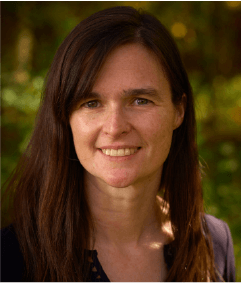
Associate Professor
Department of Geography
University of Colorado, Boulder Boulder, CO
Colleen.Reid@Colorado.EDU
Fellowship Project: Understanding the roles of objective versus perception of green space exposure on stress and mental health
As a JPB fellow, Dr. Reid sharpened her methodological toolkit including getting more involved in community-based research to better understand how environmental exposures interact with social exposures on neighborhood scales to influence population health.
Dr. Reid is an associate professor in the Geography Department at the University of Colorado, Boulder. Dr. Reid is also a Faculty Associate of the Institute of Behavioral Science, an interdisciplinary research institute at the University of Colorado Boulder, and also leads the Health and Environment Team at Earth Lab, an earth science data science center. Although trained in environmental exposure assessment and environmental epidemiology within a School of Public Health, Dr. Reid applies a geographical lens to her research, employing a variety of quantitative methods in her research including machine learning, spatial analysis, and epidemiological methods.
Dr. Reid’s research focuses on the interaction of environmental and social exposures on population health with a particular focus on the health impacts of exposures influenced by global climatic changes and society’s responses to those changes. Currently, she is leading studies investigating exposure assessment to green space and how that influences health. In these investigations, she is interested in how scale and use of different measures of neighborhood influence relationships between urban green space and health. She is also hoping to lead investigations into the mechanisms by which green space affects health. Another active area of her research is into the health implications of wildfire smoke exposure, a growing source of air pollution exposure in the western US. Using machine learning, she has created novel spatiotemporal air pollution exposure surfaces that are then used in epidemiological investigations into health impacts such as respiratory, cardiovascular, and birth outcomes. Dr. Reid has also created and evaluated a national neighborhood-level map of vulnerability to extreme heat events.
Dr. Reid received her MPH and PhD in Environmental Health Sciences from the University of California, Berkeley and did her post-doctoral training at Harvard University as a Robert Wood Johnson Foundation Health and Society Scholar. She also has a Bachelor’s of Science in Environmental Science from Brown University.